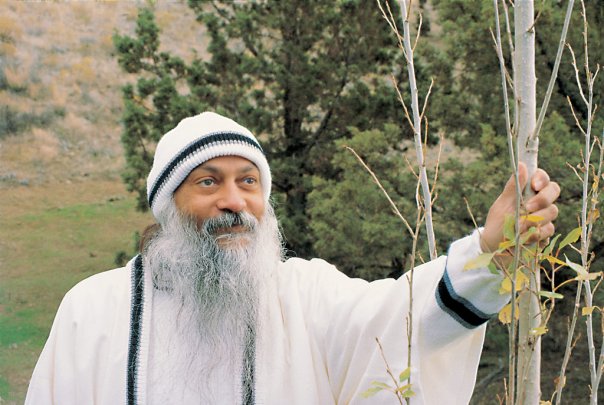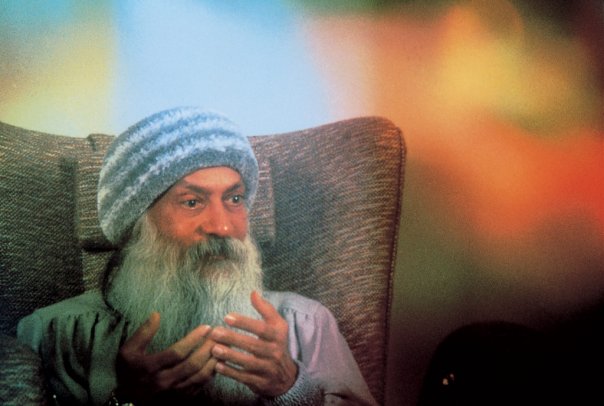Osho Quotes on Compassion
- A man of enlightenment does not practice compassion. He has not even to think about compassion, he simply finds it. As his ego disappears and as he realizes the ultimate universal life force as his own.
- Sympathy is not compassion; it is just the opposite. Sympathy is a kind of exploitation of the other person. When you sympathize with somebody, you are higher, better, and the other is lower, falling, degraded. Your ego gets immense satisfaction out of sympathy. But this is how the unconscious mind functions. You don’t know exactly what you are doing.
- This word “compassion” is composed of passion. To be compassionate means to be in love. Compassion is just a dimension of love. Passion is hasty, hectic, a little violent. Compassion is gentle, nice, understanding — but it is passion after all.
- If you feel angry too often you should meditate more on anger, so that anger disappears and its energy becomes compassion.
- The man of enlightenment finds that with enlightenment many things have come as by-products — and compassion is one of the most important.
- It is exactly the same thing: when enlightenment comes, the ego has already gone out. When enlightenment comes, just as a shadow to it compassion comes in, truth comes in, beauty comes in, grace comes in, blissfulness comes in. All that you have been searching for and were never able to manage is just showered on you.
- My own observation is that a person who loves himself deeply becomes so blissful that his whole life becomes a prayer, a service, compassion. Only a blissful person can have compassion, and only a blissful person can have love. The person who goes on following others remaining so miserable deep down, so crippled — how can he love, how can he be compassionate? Yes, he can go through empty motions of love, duty, but that is not going to fulfill him or the person he is dutiful to. It is not going to fulfill anybody.
- That’s why all the religions emphasize: God is compassionate — RAHIM, RAHMAN! — God is compassion. This is just to give you an alternative gestalt so you become focused on His compassion, not on your unworthiness. You may be unworthy — that is irrelevant — but God is compassionate. You may be a sinner — that is irrelevant — God is compassionate. He gives for no reason at all; He is simply a giver, He knows only giving. And He does not give conditionally, He gives unconditionally.
- Unless you love the Master deeply you will not be able to understand his knocks; they will look inimical. They are out of his compassion, out of his love.
- To create nothingness in you is the goal of meditation, but this nothingness has nothing to do with the negative idea. It is full, abundantly full. It is so full that it starts overflowing. Buddha has defined this nothingness as overflowing compassion.
- The word “compassion” is beautiful. It is made out of the same word as “passion.” When passion is transformed, when the desire to seek and search for the other is no more there, when you are enough unto yourself, when you don’t need anybody, when the very desire for the other has evaporated, when you are utterly happy, blissful, just being alone, then passion becomes compassion. Now you don’t seek the other because you are feeling empty and lonely; now you seek the other because you are too full and you would like to share.
- When there is overflowing love it is compassion.
- Passion arises out of negative nothingness and compassion arises out of positive nothingness.
- Buddha says that the real man of wisdom can be judged only by one thing: his compassion, his love. He will be radiating compassion. He wi!l be always ready to help people on the path. The people will be insulting him, the people will be in every possible way against him, the people will be angry at him, because the people are fast asleep and to put them on the path he has to wake them up. And nobody likes to be awakened because people are dreaming beautiful dreams. And you shake them and you wake them and you destroy their dreams, and that’s all that they have got. Otherwise they are lonely, otherwise they are empty. So they are somehow filling their inner spaces with dreams, projections, imaginations.
- Please try to understand what I mean by being selfish. First you have to love yourself, know yourself, BE yourself. Out of that you will radiate love, understanding, tenderness, care for others. Out of meditation arises true compassion, but meditation is a selfish phenomenon. Meditation means just enjoying yourself and your aloneness, forgetting the whole world and just enjoying yourself. It is a selfish phenomenon, but out of this selfishness arises great altruism. And then there is no bragging about it; you don’t become egoistic. You don’t serve people; you don’t make them feel obliged to you. You simply enjoy sharing your love, your joy.
- Buddha says: Meditation is enough to solve your problems, but something is missing in it — compassion. If compassion is also there, then you can help others solve their problems. He says: Meditation is pure gold; it has a perfection of its own. But if there is compassion then the gold has a fragrance too — then a higher perfection, then a new kind of perfection, gold with fragrance. Gold is enough unto itself — very valuable — but with compassion, meditation has a fragrance.
- With the flame of awareness even all that you have been thinking is wrong will become right. Love seems to be an entanglement, an imprisonment; with awareness that becomes a liberty, a freedom. Anger without consciousness is a destructive force, a suicidal force; it hurts you, it kills you by and by, it is a poison. With awareness the same energy is transfigured, becomes compassion. The same radiance comes to your face, but not in anger — in compassion. The same blood flows, the same chemistry of the body, but a new foreign element has entered into it, and the whole chemistry changes.



Osho speaks for the 21st century mankind not of the past. He never compromised on truth and never wore a mask.People with mask will never understand his teachings until they drop their masks.I will be grateful to him for transforming my life beyond expectation and remember him until my last breath.Find me one man who has spoken millions of words just to take us into no mind,silence,peace.if you want to know more about osho please go to
oshoworld.com